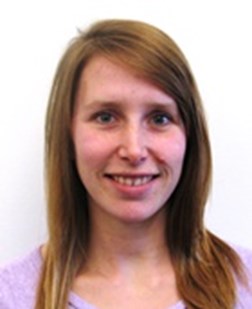Medical Physics Seminar – Wednesday, April 25, 2018
4D Flow MRI during Exercise in Prematurely Born Adults and Children

Jacob A. Macdonald (student of Dr. Oliver Wieben)
Research Assistant, Department of Medical Physics, UW-School of Medicine & Public Health, Madison, WI - USA
Preterm birth is a significant healthcare problem, accounting for roughly 1 in 10 births. Prematurely born infants may require mechanical ventilation and oxygen therapy, which has been shown to impair the development of lung airways and vasculature. Little is known about the long-term implications of these therapies on cardiac function and pulmonary circulation, however. Exercise stress tests may be a viable tool to detect the manifestation of resulting right-heart dysfunction at earlier ages, but the clinical imaging standard for such exams, echocardiography, is less reliable for right-heart imaging given its anterior position in the chest. In this work, I will present our experiences using 4D Flow MRI during exercise to overcome these limitations and characterize cardiac function in this poorly understood subject group.
Perfusion of the Placenta - Assessed by ASL and Ferumoxytol DCE MRI in the Non-Human Primate

Kai D. Ludwig (student of Dr. Sean Fain)
Research Assistant, Department of Medical Physics, UW-School of Medicine & Public Health, Madison, WI - USA
Magnetic resonance imaging (MRI) is a safe and promising modality for non-invasive, longitudinal, and functional evaluation in higher risk populations including pediatrics and obstetrics. Several pregnancy complications including intrauterine growth restriction (IUGR), maternal gestational hypertensive disorders as well as adverse birth outcomes are correlated with vascular functional deficiencies impeding nutrient exchange in placental tissue. The overall goal of this work is to develop MR techniques to assess of vascular function of the placenta, including in early pregnancy, to identify any developing pathophysiologic conditions before their clinical manifestation. We evaluate arterial spin labeling (ASL) with flow-sensitive alternating inversion recovery (FAIR) to measure placental intervillous perfusion in a pregnant rhesus macaque model and compare with ferumoxytol dynamic contrast enhanced (DCE) MRI technique. Differences in contrast dynamics of the endogenous blood label used in ASL vs. the IV injected ferumoxytol are used to delineate fast and slow components of blood arrival time. Regions of fast and slow arrival appear to be associated with functional units of the placenta that may be useful for measuring and monitoring placental function.
Improving Robustness of Hyperpolarized 13C Magnetic Resonance Spectroscopic Imaging

Erin Adamson (student of Dr. Sean Fain)
Research Assistant, Department of Medical Physics, UW-School of Medicine & Public Health, Madison, WI - USA
Magnetic resonance spectroscopic imaging (MRSI) of hyperpolarized 13C-labeled substrates is an emerging technique that enables large-scale assessment of cellular physiology linked to disease. Many hyperpolarizable 13C-labeled substrates are metabolically active, and exchange their hyperpolarized 13C label with downstream metabolites, each of which resonates at its own characteristic frequency. Dynamic hyperpolarized 13C MRSI techniques rely on a priori knowledge of the expected number and location of these resonant peaks to produce individual metabolite images and enable quantitative measures of metabolism. However, factors such as magnetic field inhomogeneities and motion can shift the resonant peaks from their expected locations. This can result in spectral contamination artifacts in the metabolic images as well as biased measures of metabolism. This work uses oversampled, k-t spiral acquisitions to collect additional spectral information that is used to further constrain the model-based, multi-spectral image reconstruction, reducing artifacts arising from unpredicted resonant shifts and improving the precision of metabolic measures.